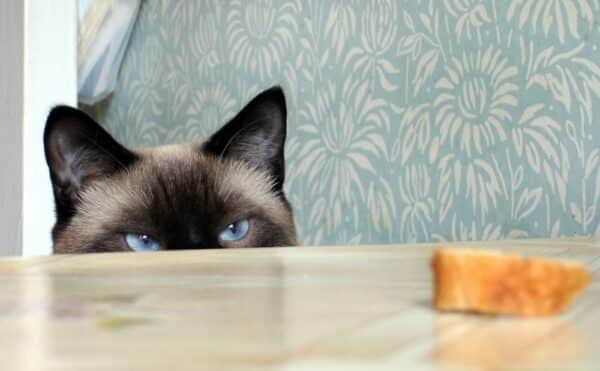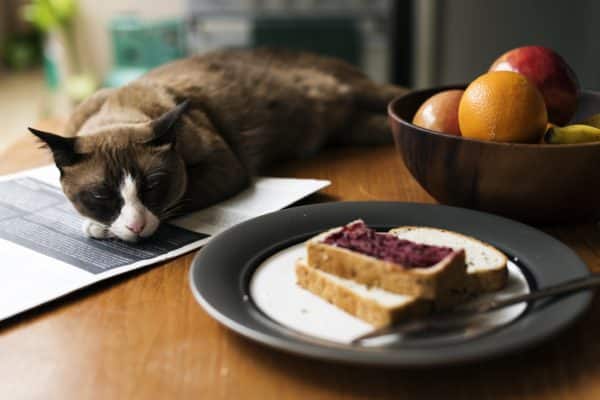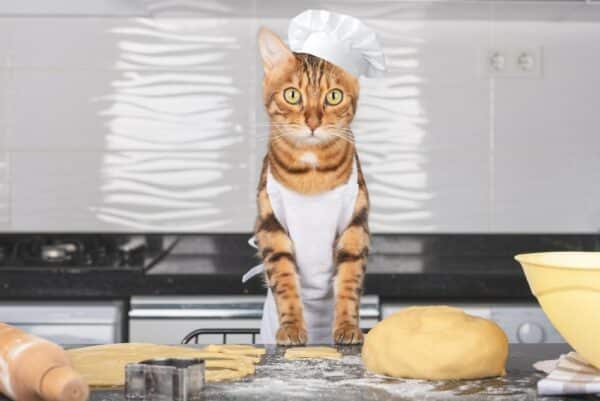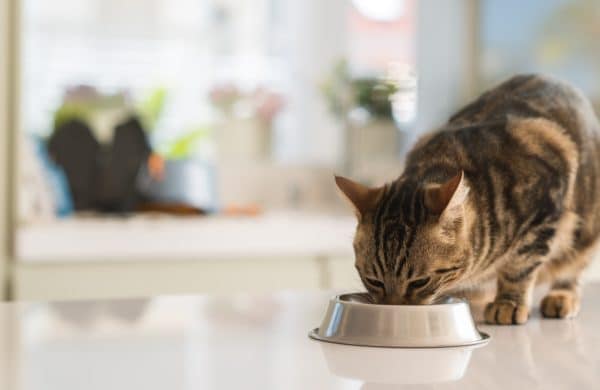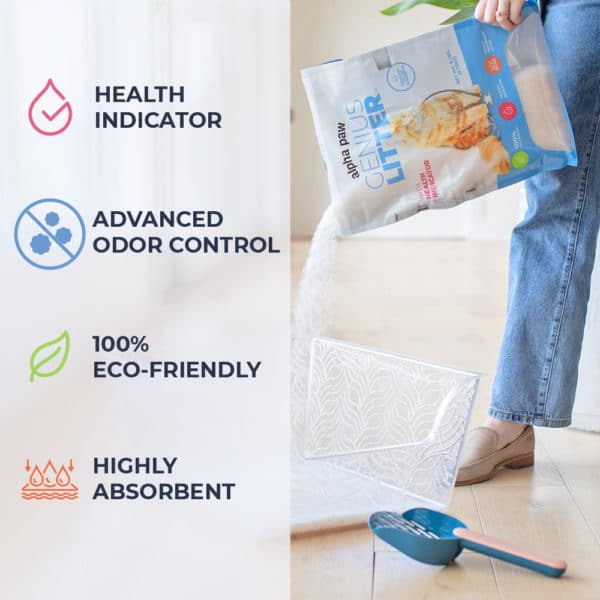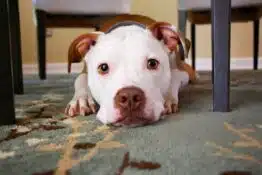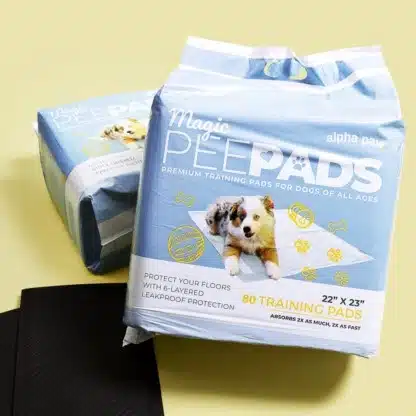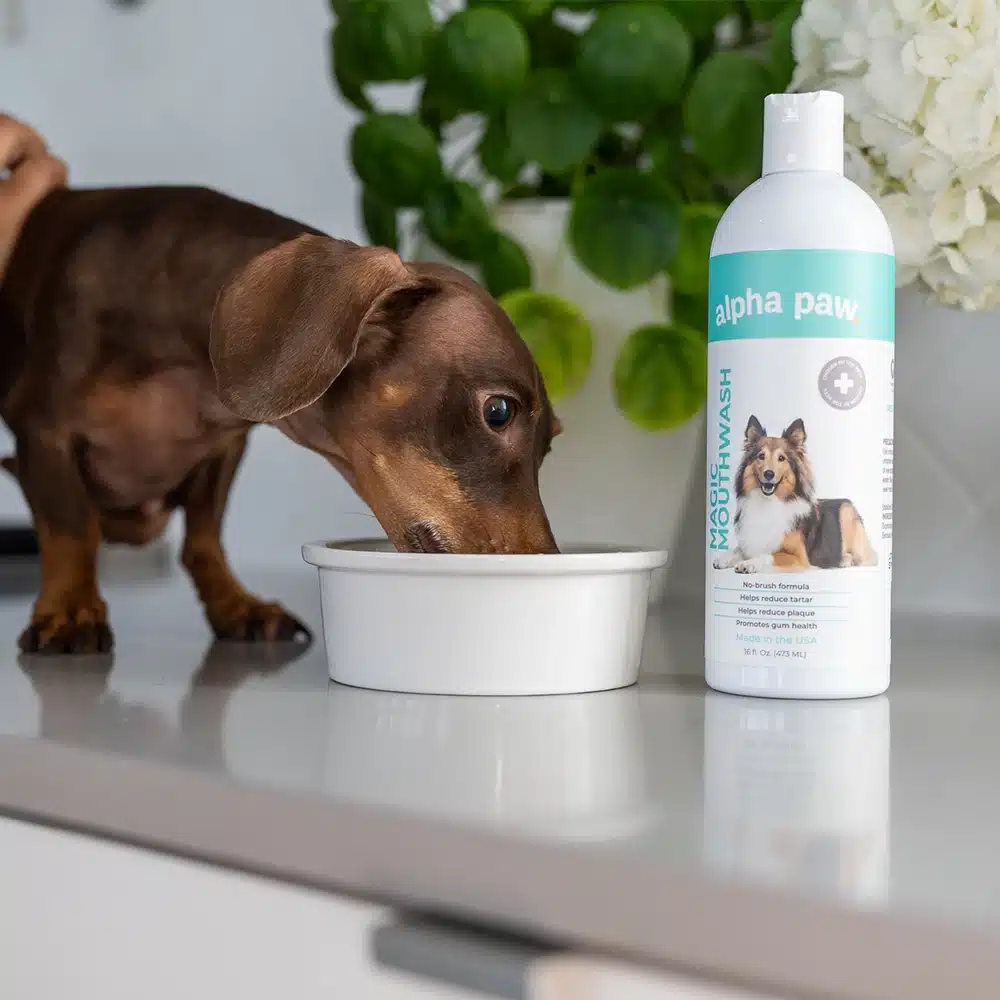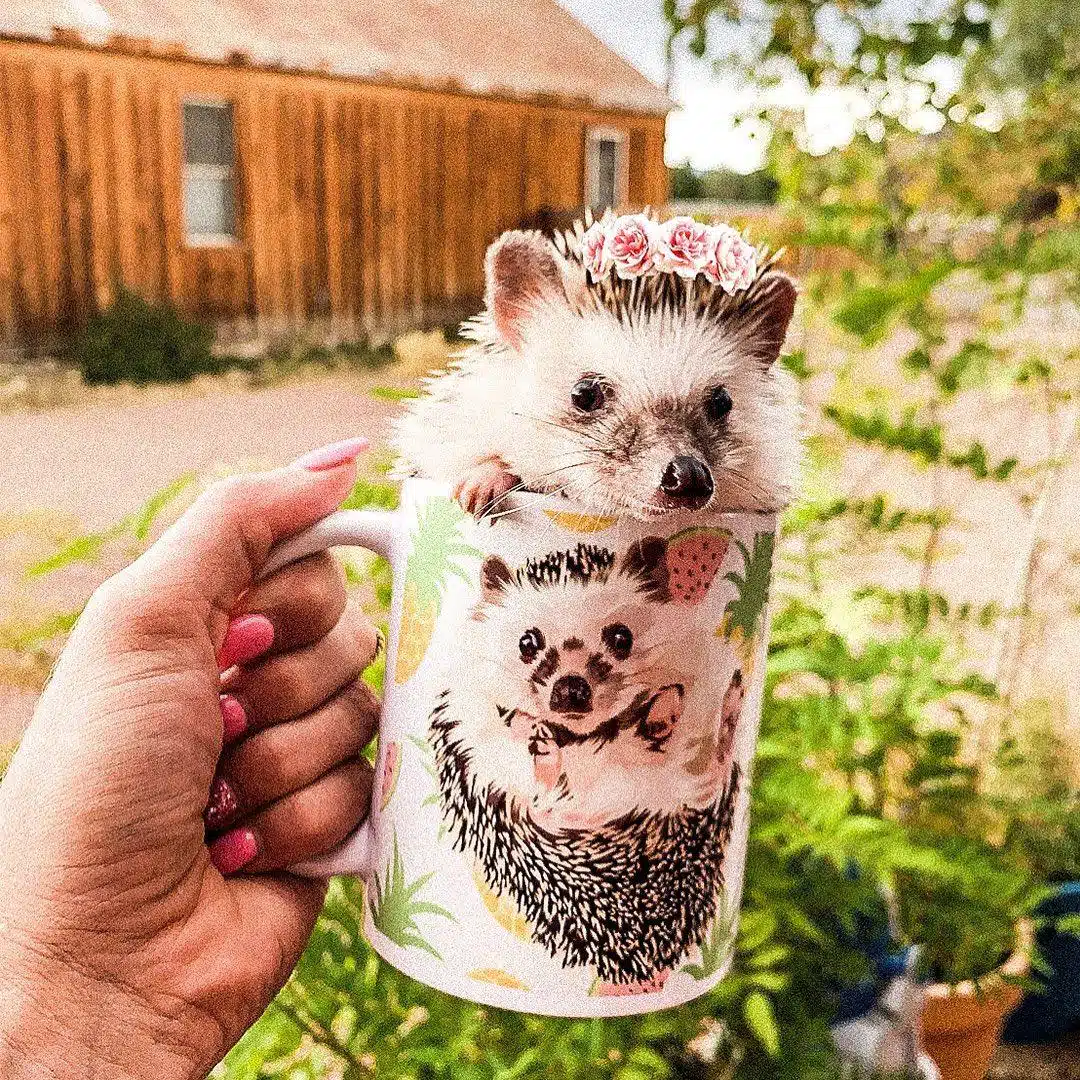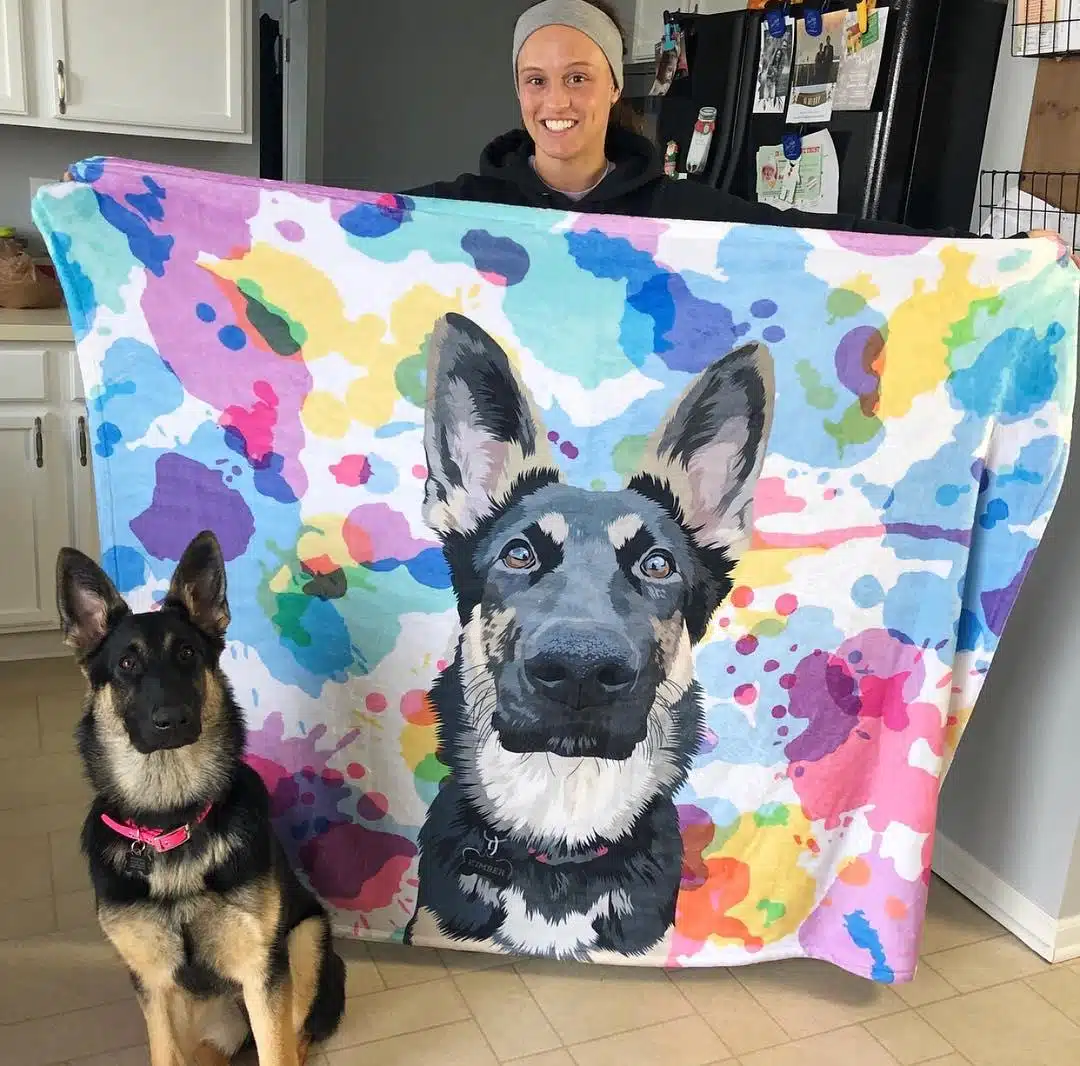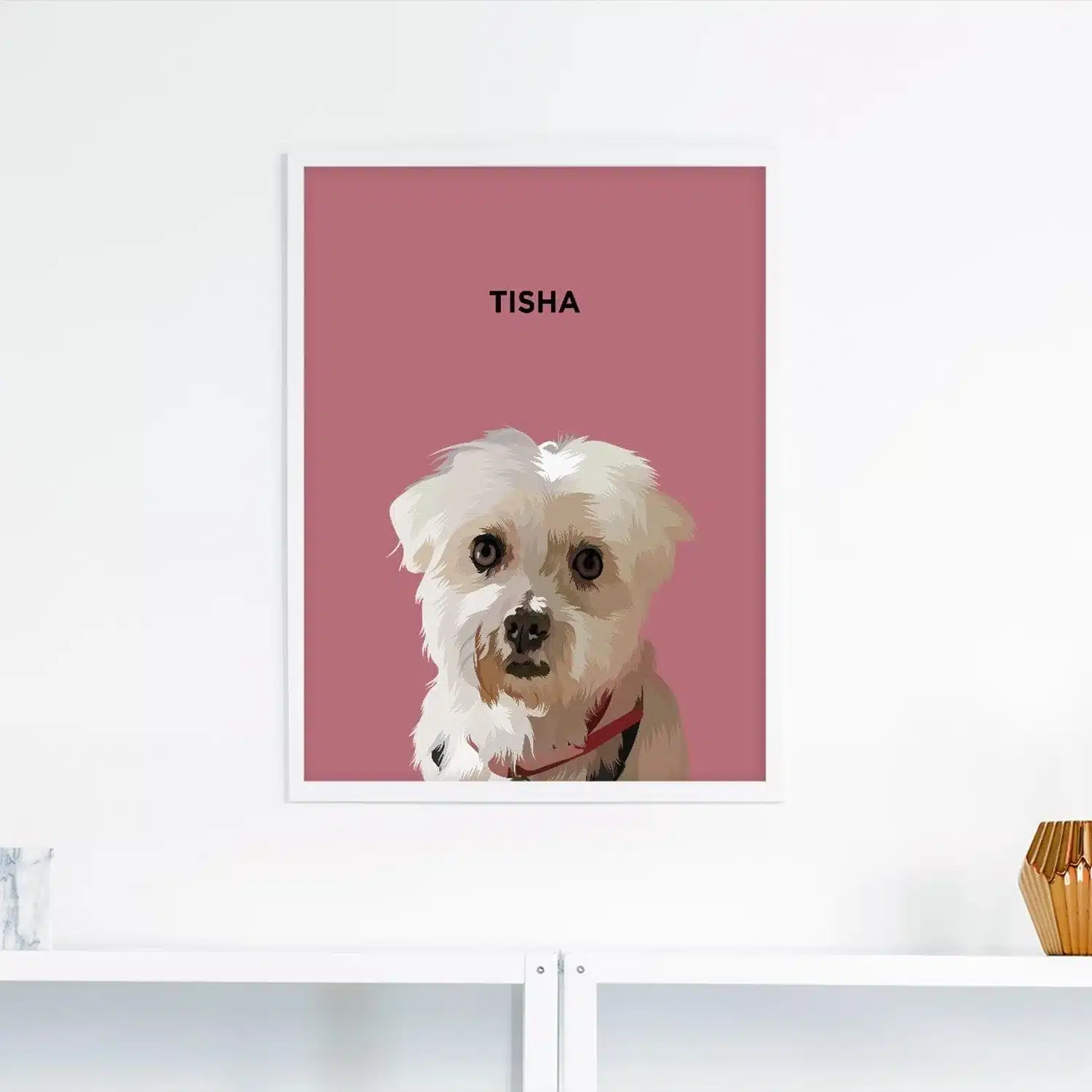Can cats eat bread? While bread might be one of the first things that come to mind when trying to decide what to feed your cat, it’s definitely not an ideal option.
Bread isn’t harmful to your cat, but there are much better choices out there if you want to feed your cat something healthy!
This guide will help you make an informed decision about whether or not cats can eat bread, as well as outline your best options for choosing food for your cat that’s better than bread (and maybe even healthier than some people’s foods!).
Keep reading!
Can Cats Eat Bread?
It is true that cats can eat bread, but it shouldn’t be fed to them regularly and as a main source of diet.
Cats don’t need to eat bread at all to be healthy and happy and feeding them more than a little bit of bread may have unintended consequences.
If your cat eats too much bread, it may develop gastrointestinal problems.
Why is Bread Harmful to Cats?
Cats are obligate carnivores and need meat protein in their diet. Bread can be harmful to cats because it contains:
- Grains
- Yeast
- Carbohydrates
What are the Reasons Cats Shouldn’t Eat Grain?
It is no secret that many felines suffer from food allergies. Grain is one of the most common allergens and can make life very difficult for a hungry kitty.
Felines are obligate carnivores and do not have the necessary enzymes to digest plant material like grains.
With these facts in mind, it is understandable why grain is bad for cats and could lead to serious health issues for your pet.
If a feline consumes grain or other allergens, it can cause vomiting and diarrhea which can lead to dehydration if not treated quickly enough.
Cats Shouldn’t Eat Yeast, So Why Is That?
Raw dough is toxic to cats, but yeast in baked bread is not. Raw yeast ferments in the feline stomach into ethanol and carbon dioxide, which are both very harmful to a cat’s health.
- Ethanol
The ethanol attacks the nervous system and can lead to organ failure and death.
- Carbon dioxide
Carbon dioxide causes the stomach to distend, or swell up with gas, which can lead to gastric dilatation-volvulus (GDV), a potentially life-threatening condition that may require emergency surgery.
What are the Downsides of Carbs for Cats?
It’s a common misconception that carbs are good for your cat. While carbs themselves are not inherently bad for our furry companions, the carbs in bread can be detrimental to their health.
Bread is full of carbohydrates and most baked bread has at least half of its calories that come from carbohydrates.
While this may be fine for humans with high metabolisms, it can lead to obesity and diabetes in cats that don’t need as many carbohydrates to maintain their health.
What is the Daily Calorie Requirement for a Feline Friend?
Cats need to eat a wide variety of food for their bodies to function properly. Therefore, it is important that your pet eats a proper diet.
The amount of food your cat should consume in a day varies depending on the size and weight of your cat, as well as how active they are during the day.
A cat’s daily calorie requirement is about 40–45 calories per kilogram of its body weight. This equals 160–180 calories per day for an average 4 kg cat.
When It Comes to Bread, How Much Can Cats Eat?
The number of calories in bread will vary depending on the type of bread, but all of them have more calories than your average cat needs in a day.
Plain bread contains about 260 calories per 100 grams. You should feed your cat only 10 grams or less of plain bread.
Never give full pieces of bread to your cat because they can’t digest it properly and it could make them sick.
Types of Bread That May Be Harmful
While some types of bread are safe for cats to eat, others can pose a danger. White and plain pieces of bread are fine.
Other types of bread that are unsafe for cats include:
- Brioche
- Flavored Bread
- Banana bread
- Bread containing Xylitol
- Nut Bread
- French toast
Brioche
Yes, cats can eat plain bread. But not Brioche! The bread contains eggs and milk, which are not good for cats and can upset their stomachs. Plus the sugar content is high in brioche.
Flavored Bread
Flavored bread often has additional ingredients that are toxic to cats, such as chocolate, herbs, and spices. If your pet likes to steal your toast or cereal now and then, try switching to cat-specific treats.
Banana Bread
Banana bread is not recommended for cats. This bread is high in carbs and can lead to many health problems.
Bread Containing Xylitol
You should avoid bread containing xylitol, a sweetener used in some baking products. Xylitol can be deadly for cats because it can cause a sudden drop in blood sugar, leading to liver failure or death. Plus, it takes much less xylitol than you might think to do this serious harm.
Nut Bread
Nut bread for cats can be tempting to buy because it is a great way to give your kitty a little treat and it is often sweetened with fruit or flavored with other types of foods.
However, nut bread is high in fat and if consumed regularly can lead to weight gain and gastrointestinal issues like diarrhea and vomiting.
Therefore it is recommended that if you do want to buy your kitty a treat it should be something like meat-flavored food or a can of tuna fish mixed with their favorite flavor of wet food instead of nut bread for cats.
French Toast
French toast may be delicious for some, but it is not good for cats to eat. The dish is made up of eggs, sugar, and milk which can be harmful to cats because of their sensitive stomachs.
The French toast is also high in carbs and can lead to health problems in a cat if ingested regularly or in large quantities.
When a Cat Eats a Lot of Bread, What Happens?
Bread is a safe food for your cat but too much of it will cause certain health problems. You might observe the following symptoms in your cat after ingestion:
- Diarrhea
- Vomiting
- Coughing
- Lethargy
- Weight loss
- Loss of appetite
- Dehydration
- Seizures
- Hair loss
- Itching
- Loose stools
- Ear infections
- Skin rashes
- Cracked paw pads
What to Do if Cats Show Signs of Bread Toxicity?
It is very important that you pay attention to any signs of bread toxicity that your cat may exhibit.
If you notice unusual behavior in the days following the ingestion of bread, call your veterinarian for advice.
Your vet may ask for a stool or blood sample for the examination which can indicate bread toxicity.
The diagnosis should be completed by:
- Physical examination
- Blood test
- Urinalysis
- Skin or intestinal biopsy
When a cat has developed an allergic reaction to grains and yeast, vets will advise you to avoid feeding them any more bread. Veterinarians may also prescribe a hypoallergenic diet to improve their health.
Is it Possible to Combine Bread with Cat Food?
Do not mix cat food and bread because the latter contains excess carbohydrates and is likely to be harmful to cats.
For example, many packaged pet meals have a high carbs count and when bread is added to the mixture the result will be a dangerous carbs overload.
Are Cats Allowed to Eat Bread and Milk?
The combination is not good for cats, since it contains carbs and lactose. The carbohydrates in bread will cause a spike in insulin, which can then lead to low blood sugar.
Lactose is also a problem for cats because their body doesn’t have the enzyme necessary for digesting it.
Are There Other Baked Goods That Cats Can Eat?
Some baked goods are not safe for cats to eat, so if you have any doubts, it is best to avoid feeding them at all.
Cats can get sick from products such as pies, cake, biscuits, and other pastries because these types of baked goods typically have more fat and carbohydrates than bread does.
Other baked goods that may not be safe for your cat are those with ingredients such as cured meat (bacon), chocolate, or vegetables.
Common Pastry Ingredients That are Toxic to Cats
Many people enjoy a slice of toast with jam or peanut butter for breakfast, but many others prefer their bread in the form of a pastry.
The problem is that many ingredients found in pastries are toxic to your cats.
Raisins, garlic, or other allium vegetables (i.e., onions and chives) found in pastries can cause anemia, vomiting, diarrhea, and even death.
What Types of Food Should a Cat Have in Place of Bread?
Cats are obligate carnivores, meaning they require a high-protein diet (like meat) for their health.
With that being said, it is not recommended that cats eat bread or other carbohydrates. The carbohydrates in these foods will fill up the cat and provide little nutritional benefit.
Instead, try feeding your cat a bowl of canned food with dry kibble on the side. Feeding your cat a mix of wet and dry food will provide them with more balanced nutrition and help keep them healthy!
Snacks for Cats That are High in Protein
A small amount of meat or seafood, such as small chunks of cooked chicken or a small serving of tuna, provides your cat with the necessary nutrients.
There are many sources of protein you can choose from:
- Tuna
- Chicken
- Cooked eggs
- Sardines
- Lean beef
- Lamb
- Shrimps and prawns
- Salmon
- Mackerel
Is There Anything Else I Should Avoid Feeding My Cat?
When sharing your food with your cat, make sure you give them healthy human snacks instead of foods that may harm them.
Foods you shouldn’t give your cat include:
- Alcohol
- Citrus fruits
- Coffee
- Coconut
- Grapes and raisins
- Dairy products
- Mushrooms
- Onions
- Garlic
- Leeks
- Chives
- Scallions
- Shallots
Key Takeaways
- Cats can occasionally eat bread, but never more than one tiny piece a day.
- Feeding your cat bread as a treat once in a while is okay but remembers that it should not replace their regular food intake.
- Feeding your cat too much bread can lead to gastrointestinal upset, obesity, diabetes, and even liver failure.
- Always consult with your vet before feeding your cat any new foods, and make sure they are on an appropriate diet.
Importance of Pet Insurance
Pet insurance is a great way to protect your animal’s health. It can be hard to predict when an accident will happen, but with pet insurance, you’re covered.
There are a few different types of plans depending on your needs, and it only takes minutes to get coverage for your pet.
Some pet insurance companies will even cover 100% of veterinary expenses. So make sure to choose the best pet insurance plan for your furry friend.
Once you have a plan in place, vet bills will never be too high because they’ll already be covered by the policy.
It’s important that we all take care of our animals’ safety and well-being so they can enjoy their lives just as much as we do ours.
What Makes Genius Litter Different from Ordinary Litter?
Say goodbye to hauling heavy bags and hello to easy Genius Litter.
With our innovative non-clumping litter formula, you’ll need less of it. One bag of our disposable Genius Litter lasts up to a month, so you won’t need to refill the box as often and can save money on monthly costs.
One thing that separates us from traditional litter is that Genius Litter changes color to indicate when your cat has a potential health issue, so you can get them help before it becomes an urgent medical situation.
All you need to do is set up a delivery date with us each month, and rest easy knowing that Genius Litter will arrive at your doorstep every 30 days.
For a convenient solution for your cat, try Genius Litter today!
Why is Lysine so Important for Your Pet?
Protect your pet’s immunity!
Have you noticed that your cat is coughing, sneezing, and having rapid breathing? Or maybe he/she has been scratching more than usual?
These are all signs of a weakened immune system. One way to prevent this from happening is by using lysine supplements.
Lysine plays a key role in your pet’s immunity because it helps to regulate the immune system.
Without enough lysine, your pets will be more susceptible to illness because their immune system can’t fight off infections as efficiently.
When they are sick, they will also be less able to absorb nutrients and make use of other supplements that can help them feel better.
Give your pet the support they need. Our Lysine supplement provides essential amino acids to help support a strong immune system.
Order now to get 300 one-scoop servings or 150 two-scoop servings and don’t worry about expiry!

